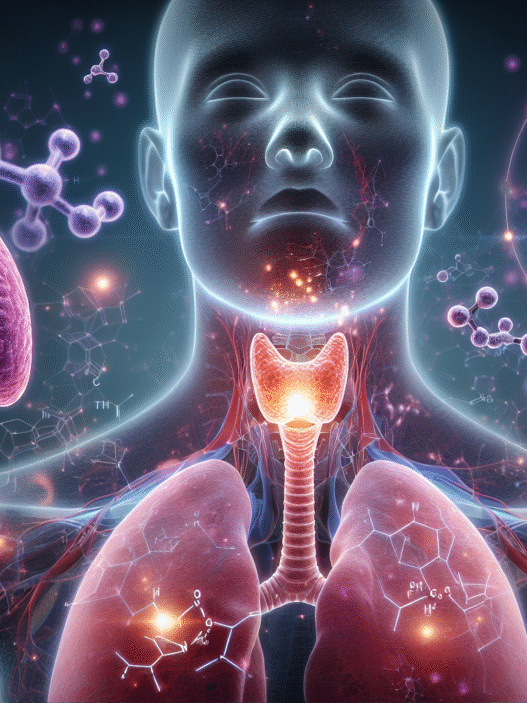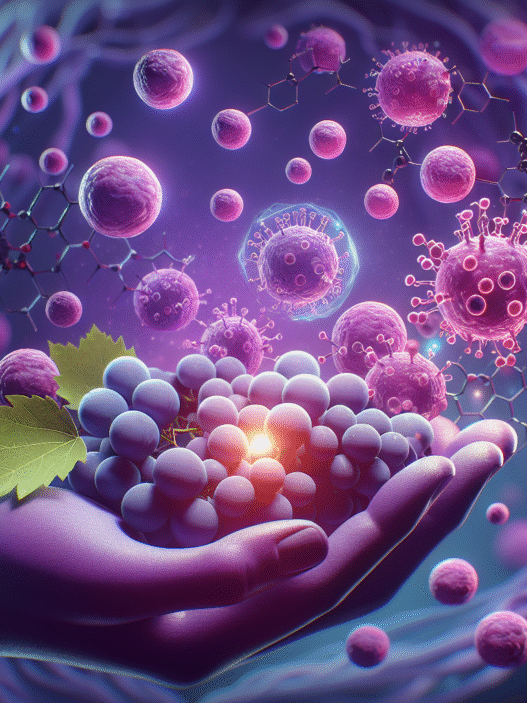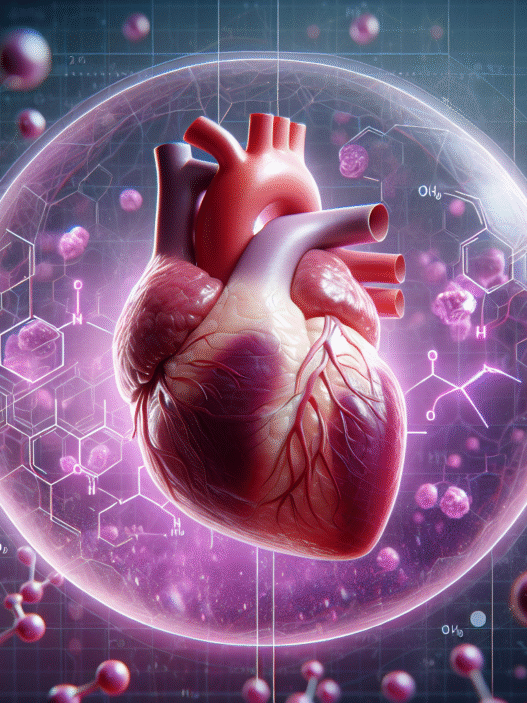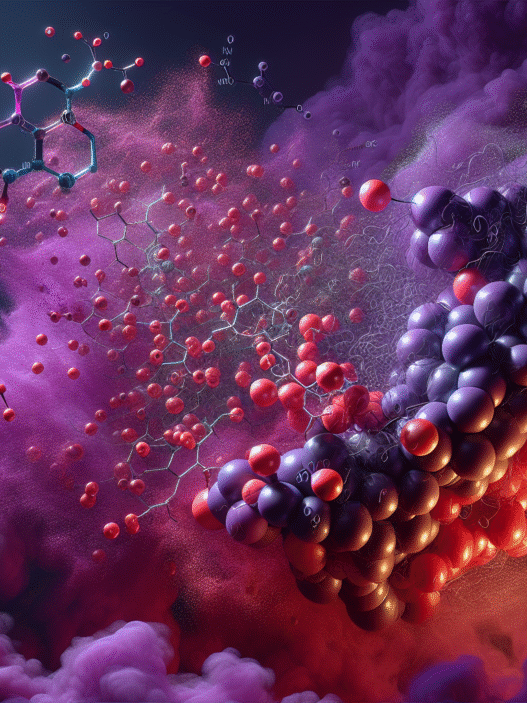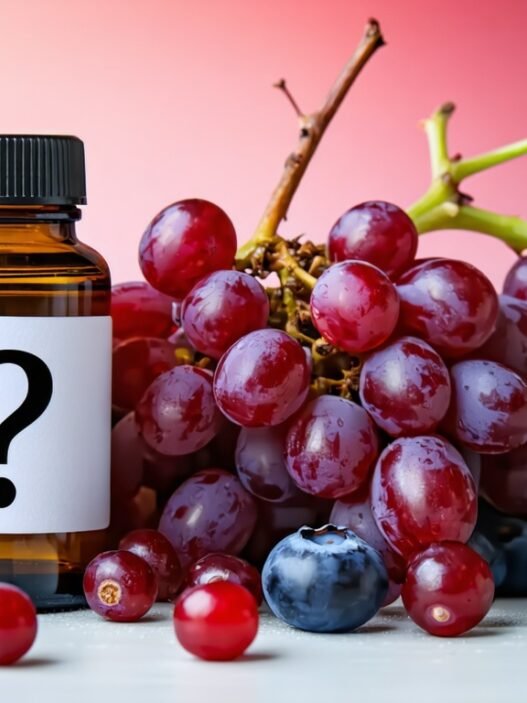Understanding Resveratrol
What is Resveratrol?
Resveratrol is a natural plant compound that has gained attention for its potential health benefits. It is believed to activate sirtuins, proteins that play a crucial role in DNA repair, stress response, and longevity-related activities. There are two forms of this compound: cis and trans. Among these, trans-resveratrol is considered to be more biologically active due to its structural properties (Vitality Pro).
Sources of Resveratrol
Resveratrol is primarily found in various fruits and is especially abundant in grapes, berries, and peanuts. This stilbene compound is not only associated with nutrition but also exhibits anticancer properties against a variety of tumors, including those related to breast, prostate, stomach, colon, and pancreatic cancers. The anticancer effects are mediated through multiple pathways such as cell-cycle arrest, induction of apoptosis, regulation of gene expression, and inhibition of inflammatory markers. Although limited data in humans suggest that resveratrol is pharmacologically safe, its consumption remains a topic of interest for natural health seekers.
| Source | Resveratrol Content |
|---|---|
| Red Grapes | Medium |
| Blueberries | Low |
| Peanuts | Low to Medium |
| Mulberries | High |
For more information on potential risks associated with resveratrol, consider reading about what is the downside of resveratrol?. There are also ongoing discussions about safety, including concerns like is resveratrol toxic to the liver? and whether it can affect blood pressure, as explored in can resveratrol raise blood pressure?.
Health Benefits of Resveratrol
Resveratrol has been the focus of numerous studies, revealing a variety of health benefits that appeal to those interested in natural health and holistic wellness. The potential advantages of this compound encompass cognitive function, cardiovascular health, diabetes management, and anti-cancer properties.
Cognitive Function
Research indicates that resveratrol may play a role in enhancing cognitive health. Studies suggest that it could protect brain cells from damage associated with neurodegenerative diseases like Alzheimer’s. Resveratrol appears to interfere with protein fragments crucial in forming plaques, which are linked to Alzheimer’s disease. However, the effectiveness of supplemental resveratrol for brain protection remains an area of ongoing investigation.
| Benefit | Impact on Cognitive Function |
|---|---|
| Protects brain cells | Interferes with Alzheimer’s-related plaques |
| Potential memory enhancement | Still under research |
Cardiovascular Health
Many experts believe that resveratrol offers substantial benefits for cardiovascular health. It has been shown to help lower blood pressure and improve serum lipid levels in individuals at risk for heart disease. According to research, resveratrol can mitigate insulin resistance and lower elevated blood pressure, which may contribute to its cardiovascular protective effects (WebMD).
| Benefit | Impact on Cardiovascular Health |
|---|---|
| Lowers blood pressure | Reduces risk of heart disease |
| Improves cholesterol levels | Helps in managing cholesterol |
Diabetes Management
Resveratrol has demonstrated promising results in studies related to Type 2 diabetes. It has shown improvements in serum cholesterol and glucose levels, reversing insulin resistance and contributing to lower blood sugar levels. These effects suggest that resveratrol could be a vital supplement for those managing diabetes.
| Benefit | Impact on Diabetes Management |
|---|---|
| Lowers blood sugar levels | Helps in managing glucose |
| Reverses insulin resistance | Aids individuals with Type 2 diabetes |
Anti-cancer Properties
Another compelling aspect of resveratrol is its potential anti-cancer properties. Research indicates that it may inhibit cancer cell growth and promote apoptosis, which is the process of programmed cell death. Resveratrol has been shown to positively influence all stages of cancer development and could enhance the efficacy of chemotherapy treatments by blocking resistance in cancer cells.
| Benefit | Impact on Cancer |
|---|---|
| Inhibits cancer cell growth | Affects multiple cancer stages |
| Enhances chemotherapy efficacy | Blocks chemo-resistant proteins |
Resveratrol’s multifaceted health benefits render it a subject of interest for further research within the fields of health and wellness. For those curious about any potential drawbacks, you can read more about the concerns raised in our article on what is the downside of resveratrol?.
Safety and Dosage of Resveratrol
Understanding the safety and appropriate dosage of resveratrol is essential for those considering its supplementation. Resveratrol has garnered attention for its potential health benefits, but knowledge of its safety profile ensures informed usage.
Daily Intake Guidelines
The consumption of resveratrol derived from natural food sources is generally regarded as safe for daily intake. Low to moderate doses are considered safe for prolonged periods. According to WebMD, higher doses reaching up to 3,000 milligrams daily can be safely consumed for as long as six months. Clinical studies indicate that resveratrol supplementation can be well-tolerated at doses up to 5 grams.
| Dosage Range | Duration | Safety Status |
|---|---|---|
| Low to Medium | Long-term | Safe |
| Up to 3,000 mg/day | Up to 6 months | Safe |
| Up to 5 grams | Varies | Well-tolerated |
Potential Side Effects
While resveratrol is considered safe for many individuals, some potential side effects should be noted. Resveratrol has the capability to slow blood clotting, which could increase the likelihood of bruising and bleeding, particularly when combined with blood-thinning medications. Additionally, it may alter the metabolism of certain medications, affecting how quickly the liver breaks down these drugs.
Interactions with Medications
It’s important for anyone considering resveratrol supplementation to be aware of how it may interact with other medications. As indicated, resveratrol might slow blood clotting, increasing the risk of bruising when taken alongside anticoagulants. This interaction emphasizes the necessity of consulting a healthcare provider before starting any resveratrol regimen, especially for those already on medication. For further details on the implications of resveratrol, see our article on what is the downside of resveratrol?, and for concerns related to liver toxicity, check is resveratrol toxic to the liver?. Additionally, if someone is worried about blood pressure effects linked to resveratrol, our article on can resveratrol raise blood pressure? may provide valuable insights.
Resveratrol in Clinical Trials
Resveratrol has garnered attention in various fields of medical research due to its potential health benefits. Multiple clinical trials have explored its influence on neurological disorders, cardiovascular and metabolic effects, as well as its implications for aging.
Influence on Neurological Disorders
Research indicates that resveratrol may play a role in regulating neuro-inflammation in patients with Alzheimer’s disease. Clinical studies reported improvements in neurovascular coupling capacity and cognitive performance in individuals with type 2 diabetes, suggesting resveratrol’s ability to positively impact brain health (PubMed Central). The compound has shown promise for enhancing cognition and reducing inflammation associated with neurodegenerative diseases.
Cardiovascular and Metabolic Effects
Clinical trials have highlighted resveratrol’s potential benefits for heart health and metabolic function. A systematic review conducted by Hausenblas et al. concluded that resveratrol led to significant improvements in various cardiometabolic biomarkers, supporting its use as an adjunct to pharmacological management for type 2 diabetes mellitus. The safety profile of resveratrol is generally considered excellent, making it a worthwhile candidate for further investigation in cardiovascular therapies.
| Study Focus | Key Findings |
|---|---|
| Cardiovascular Health | Improvements noted in cardiometabolic biomarkers |
| Diabetes Management | Enhanced management of type 2 diabetes in combination with standard treatments |
| Safety Profile | Generally well tolerated with minimal side effects |
Resveratrol has shown well-tolerated effects that beneficially influence disease biomarkers, contributing to its growing reputation as a supportive therapy for cardiovascular conditions and metabolic disorders.
Resveratrol and Aging
Resveratrol’s association with aging is under extensive examination, primarily due to its ability to mimic the effects of caloric restriction and its anti-inflammatory, anti-oxidative properties (Nature). This ability positions resveratrol as a candidate for aging-related research, focusing on how it may help improve health span and longevity.
However, while resveratrol shows promise, it is important to note that there are ambiguous and sometimes detrimental effects observed in certain research areas, particularly regarding specific cancers and non-alcoholic fatty liver disease (NAFLD). Further research is necessary to refine our understanding of resveratrol’s efficacy in these contexts.
For information on the potential downsides of resveratrol, visit what is the downside of resveratrol?. If you’re interested in understanding its toxicity, check our article on is resveratrol toxic to the liver?, and for insights on its effects on blood pressure, refer to can resveratrol raise blood pressure?.
Factors Affecting Resveratrol Efficacy
Understanding the factors that affect the efficacy of resveratrol is crucial for those considering its use for health benefits. The following sections delve into dosage and duration, bioavailability and absorption, and the hormetic response associated with resveratrol.
Dosage and Duration
Determining the optimal dosage of resveratrol (RE) is essential for maximizing health benefits while minimizing toxicity. Research indicates that responses to resveratrol can vary widely among individuals. The hormetic property of resveratrol, which prompts bidirectional responses depending on dosage, complicates this determination.
| Dosage Range | Expected Effect |
|---|---|
| Low Dose | Antioxidant effects |
| High Dose | Potential pro-oxidant effects leading to oxidative stress |
More studies are needed to establish clear guidelines on effective dosages to optimize health benefits without adverse effects.
Bioavailability and Absorption
The bioavailability and absorption of resveratrol are affected by several factors, including the dose consumed, the food matrix, particle size, and gut microbiota. These factors can significantly influence how resveratrol is metabolized and utilized in the body (PubMed Central).
Despite its controversial low bioavailability and rapid metabolism, resveratrol can display relevant biological efficacy. This may result from its conversion into various metabolites or its interaction with plasma proteins, facilitating its delivery to target organs (NCBI).
| Factors Influencing Bioavailability | Impact |
|---|---|
| Dose ingested | Higher doses may lead to different absorption rates |
| Food matrix | The presence of other foods can enhance or inhibit absorption |
| Particle size | Smaller particles tend to have better absorption |
| Gut microbiota | Variability among individuals affects metabolism |
Hormetic Response
Resveratrol exhibits a unique hormetic response, displaying concentration-dependent effects. At low doses, it acts as an antioxidant, providing beneficial effects. Conversely, at high doses, it can function as a pro-oxidant, potentially leading to oxidative stress, DNA damage, and cell death (NCBI). Understanding this duality is essential for anyone considering resveratrol for health purposes.
| Concentration Level | Effect |
|---|---|
| Low Dose | Antioxidant, protective effects |
| High Dose | Pro-oxidant, potential oxidative damage |
For those exploring resveratrol’s benefits, considering these factors can guide informed decisions about its use. For more insights regarding potential downsides or interactions, refer to our articles on what is the downside of resveratrol?, is resveratrol toxic to the liver?, and can resveratrol raise blood pressure?.
Resveratrol and Longevity
Resveratrol has garnered attention in the realm of longevity and anti-aging research. This natural compound offers various health benefits, particularly in activating certain proteins and enhancing cellular health.
SIRT1 Activation
One of the key mechanisms through which resveratrol is believed to contribute to longevity is by activating SIRT1, a member of the sirtuin family of proteins. SIRT1 plays a crucial role in maintaining cellular health, including DNA repair and stress responses. Activation of SIRT1 has been linked to various positive effects on aging, although its efficacy is still debated within the longevity community. Resveratrol, particularly in its trans-form, is noted for its stronger biological activity due to its specific structure.
Mitochondrial Health
Resveratrol has also been shown to enhance mitochondrial health by increasing the number of mitochondria within cells. This effect is important as mitochondria are the powerhouses of the cell, responsible for energy production. An increase in mitochondrial count can lead to improved energy efficiency and better overall cellular function. In various studies, resveratrol has demonstrated the ability to extend the lifespan of organisms such as yeast by promoting sirtuin activation, thereby improving health markers and contributing to better metabolic function (Vitality Pro).
| Benefit | Description |
|---|---|
| SIRT1 Activation | Activates proteins responsible for DNA repair and longevity |
| Mitochondrial Increase | Enhances the number of energy-producing mitochondria |
Future Research Opportunities
Despite existing studies, there remains a need for further research to fully understand the implications of resveratrol on longevity. Future clinical trials may focus on its long-term effects on human health, especially concerning chronic conditions, metabolic diseases, and the aging process itself. Current findings indicate that while the compound shows promise, its ambiguous effects in certain conditions, such as specific cancer types and non-alcoholic fatty liver disease (Nature), highlight the necessity for ongoing investigation into its safety and potential therapeutic roles. Additional research will help clarify how to best utilize resveratrol for health benefits while considering its possible downsides, as discussed in our article on what is the downside of resveratrol?.
In summary, resveratrol presents promising avenues for enhancing longevity through SIRT1 activation and improved mitochondrial health, but future studies will be essential to determine its full potential and safety in long-term use.














